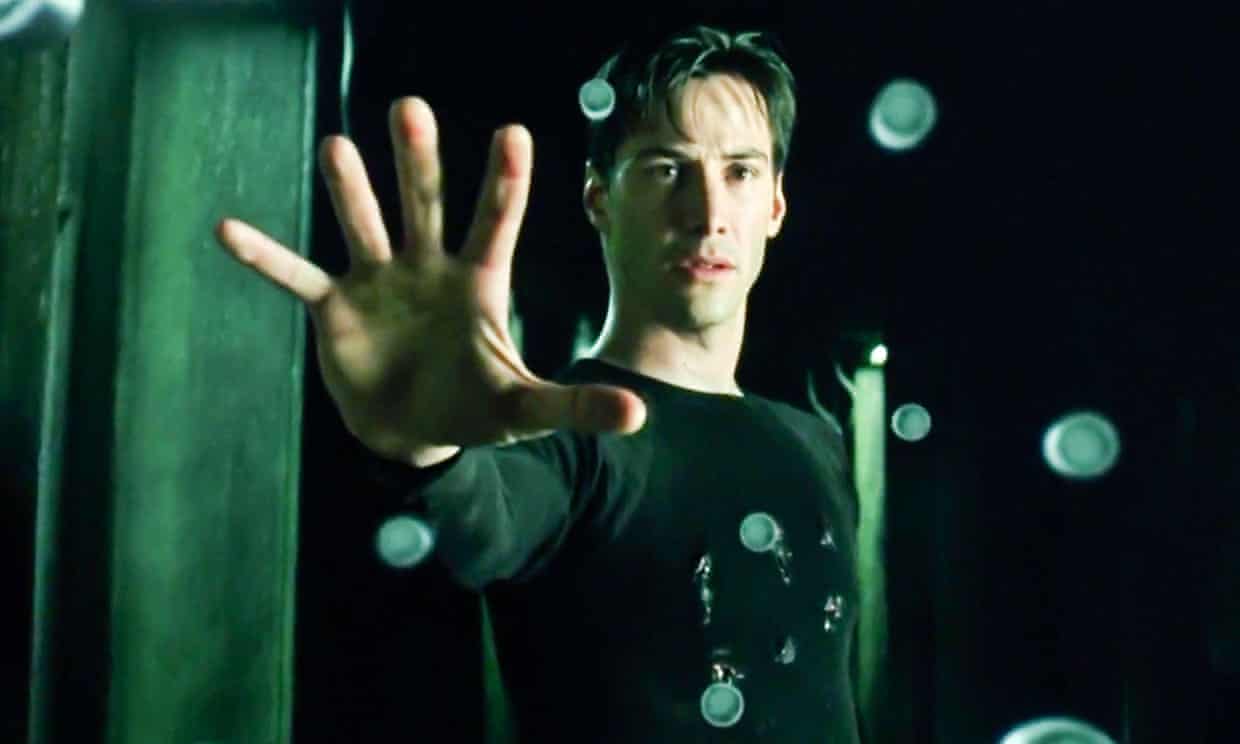Two decades after The Matrix came out, we’re still asking: ‘Is this really happening?’
"It was early 1999, and people were freaking out about the future. A new millennium was on the way, carrying with it the promise – or threat – of massive change. Would the next century guide us toward a tech-enabled utopia? Or, as some feared, would it plunge the world into a full-on apocalypse?
These were strange days, marked by equal parts anxiety and anticipation. Which made it the perfect moment for a sleek, cerebral movie called The Matrix.
Created by a pair of mostly unknown filmmakers (Lana and Lilly Wachowski), and headlined by a commercially iffy star (Keanu Reeves), the $60m cyber-thriller became an instant hit. Some viewers were sucked in by the film’s mind-melting storyline – about a hacker named Neo who discovers that mankind is enslaved in a computer-made simulation. Others were simply turned on by the film’s whoa-inducing fight scenes. The year may have been full of big-spectacle, big-hype movies, but by the end of 1999, it was clear that The Matrix was The One: the first true digital-era blockbuster, one that foretold the ways technology would reshape not only filmmaking, but also our daily lives, both for better and for worse.
‘Would the next century guide us toward a tech-enabled utopia?’ Keanu Reeves in The Matrix (1999). Photograph: Landmark Media/Alamy

The pop-cultural impact of the film was clear within months of its release. The Wachowskis had plundered numerous visual influences, from Hong Kong action flicks to Stanley Kubrick’s 2001: A Space Odyssey. And they’d incorporated new digital effects that let characters freeze in mid-air, or dodge hails of gunfire, while cameras circled the action in a near-360-degree swirl. As a result, The Matrix didn’t quite look like any movie that had come before, and its slowed-down, hyper-detailed visual style was soon being satirised and adapted by other filmmakers. Not since 1977, when Star Wars was released, had a movie so quickly rebooted the look and feel of mainstream moviemaking.
But these were all surface-level aftershocks. The deeper legacy of The Matrix wouldn’t be revealed for years. A DVD release broke sales records at the time, allowing for multiple repeat viewings. But it was the internet that really let Matrix fans go down the rabbit hole. The Wachowskis’ script had been kicking around since the mid-90s, a time when the mainstream web was in its infancy. But by 1999, millions of Americans were chatting, ranting, and shopping online. At the same time, the spectre of the possibly destructive Y2K “millennium bug” hung over everything.
It was a tense, transformative period – one that was encapsulated by The Matrix. If you were suspicious of all this new technology, the film served as a cautionary tale about our devices overpowering our lives. But if you were already very online, The Matrix was proof that the internet was full of possibility – and that if things went bad, people had the power to rise up and reclaim their own humanity. . .



No comments:
Post a Comment